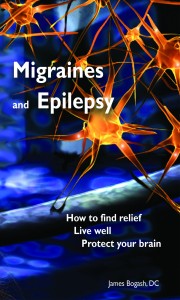
Too many seizure meds may create problems
The mainstream approach to treating seizures is to use medications. And it pretty much stops there.
You may get some cursory advice to exercise and watch your stress levels, but the reality is that many neurologists believe that nothing you can do will be as powerful as the anti-seizure medications.
When those medications don’t work at all (which is about 30% of the time) another medication is tried. Most of this is guesswork. There really is no science behind who will benefit from Drug A over Drug B. Much of this is provider experiences—they go with what they know. And they are more likely to try the new fancy drugs over the older ones that have decades of history.
When the list of drugs doesn’t work or doesn’t give adequate seizure control, another drug is added to the mix. At this point, we’re completely out of the realm of double-blind placebo controlled studies and into guesswork.
Every anti-epileptic drug has a list of side effects. Some minor, some life-debilitating. And the more drugs you add in, the longer this list of side effects becomes. And this still does not guarantee that the seizures will be controlled.
Poor controlled seizures are called refractory. In this interesting study, researchers took 962 patients with drug refractory epilepsy and put them in a neurology ward to see what would happen if the number of medications they were on were reduced from an average of 4.24 down to a maximum of three AEDs during their stay in the ward.
Personally, I think 3 meds still sounds like an awful lot of foreign chemicals running through the brain. I’d wonder how many of these patients were also trying natural approaches to seizures that have been shown to be effective like exercise, omega 3 fatty acids, vitamin D and diet.
Here’s what they found after these patients were followed up 6 months later:
- After the tapering of the drugs, patients were on an average of 2.65 AEDs.
- In 82.7% patients there was either a REDUCTION in seizure frequency or no change at all.
So basically, taking these patients off of some of their drugs led to no change or an actual improvement in seizure frequency. Clearly there is something wrong with the way these patients were managed. For me, this makes it clear that medications are not the only answer and can actually begin to create more problems than they solve.
If you suffer from seizures and the first medication that you take does not adequately control your seizures, it is clear that you can no longer rely on medications alone to help heal your brain.
While it is beyond the scope of this post to outline things that can be done to heal your brain, feel free to check out my Migraines and Epilepsy book by clicking here.

I was diagnosed with Epilepsy at 3 years old and have a long family history of Epilepsy. As a child I had so many seizers that I was studied at UC Davis for several months as a result of my seizers not being controlled by medications and for the fact that the seizers I did have seemed to be some what different than the usual they see at least here and there. I took medications until I was 17 years old when I decided to take myself off of them. It was then that my seizers were able to be controlled by myself for the most part. I am currently down to a seizer every 2 years. However this will be the first year that I have made it to 3 years seizer free. I am not saying that all seizers can be reduced or eliminated by going off medication, I have known many people who have seizers who need medication to control theirs. Others I have met continue to have such severe seizers even with medication and their injuries endured are extraordinary and heart breaking especially when they have young children they are caring for that are at risk if they have a seizer. There are diets and natural things that I have tried. One being the Medium-Chain Triglyceride (MCT) Diet. Omega’s vit. D. keeping sugar levels , vit B., eating mostly organically, exercise, and lowering stress helps to of course. It was great reading your blog and seeing how really…. everyone is different, and if multiple medication, one medication or if non it could or could not help, but that there is no definite answer when it comes to seizers as the seizers you have could be related to so many things it truly is a trial and error approach. But I believe starting with nutrition, diet and exercise is a better approach some times than trying medication that would no doubt have long term effects or have side effects like, dizziness, yes dizziness something that someone with seizers would never want. However, I do believe in physicians and believe that they know what they are doing but sometimes you need to trust your body and instincts even using medication as a stepping stool until you can wean yourself off under the physicians care and try diet and exercise